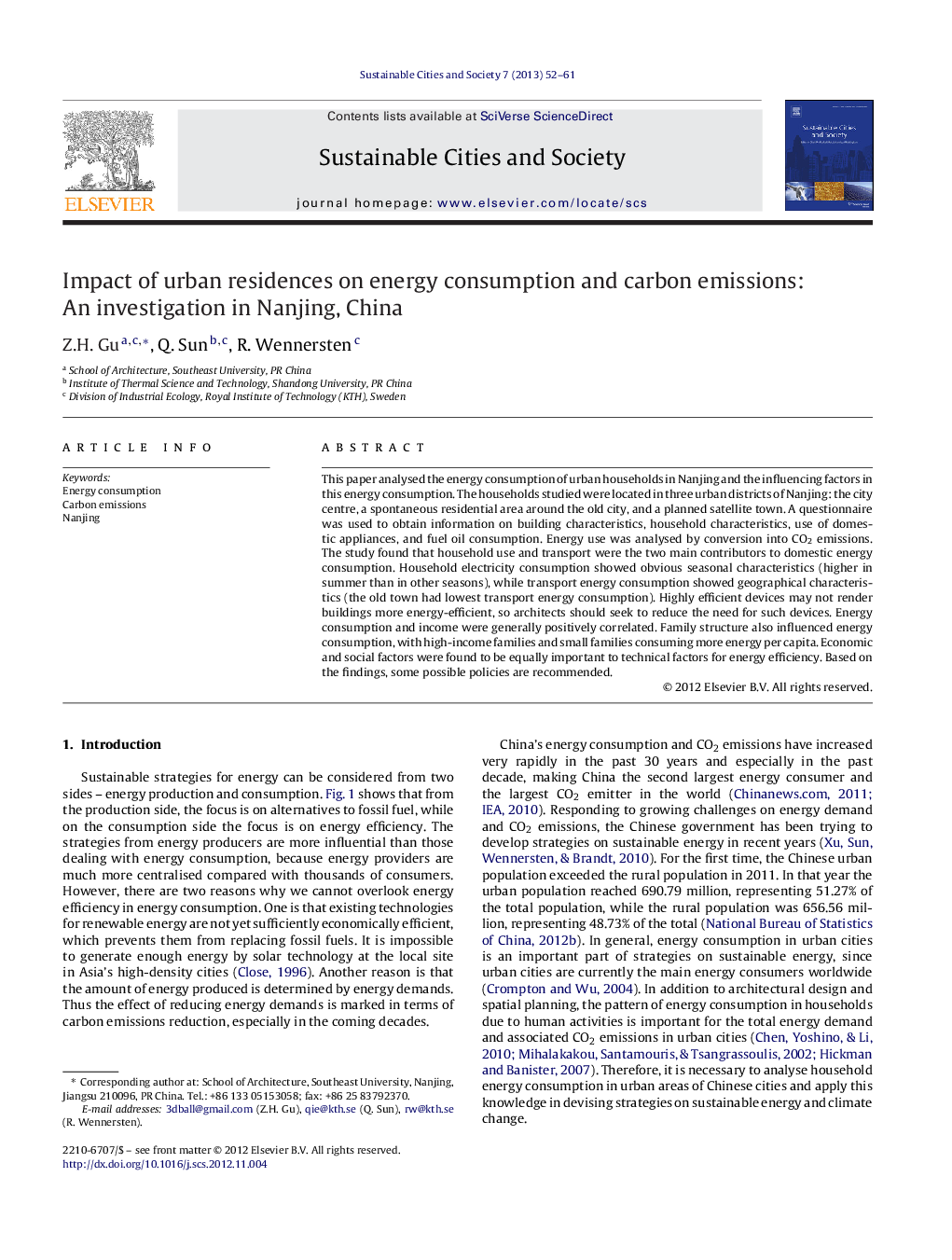| Article ID | Journal | Published Year | Pages | File Type |
|---|---|---|---|---|
| 308229 | Sustainable Cities and Society | 2013 | 10 Pages |
This paper analysed the energy consumption of urban households in Nanjing and the influencing factors in this energy consumption. The households studied were located in three urban districts of Nanjing: the city centre, a spontaneous residential area around the old city, and a planned satellite town. A questionnaire was used to obtain information on building characteristics, household characteristics, use of domestic appliances, and fuel oil consumption. Energy use was analysed by conversion into CO2 emissions. The study found that household use and transport were the two main contributors to domestic energy consumption. Household electricity consumption showed obvious seasonal characteristics (higher in summer than in other seasons), while transport energy consumption showed geographical characteristics (the old town had lowest transport energy consumption). Highly efficient devices may not render buildings more energy-efficient, so architects should seek to reduce the need for such devices. Energy consumption and income were generally positively correlated. Family structure also influenced energy consumption, with high-income families and small families consuming more energy per capita. Economic and social factors were found to be equally important to technical factors for energy efficiency. Based on the findings, some possible policies are recommended.
